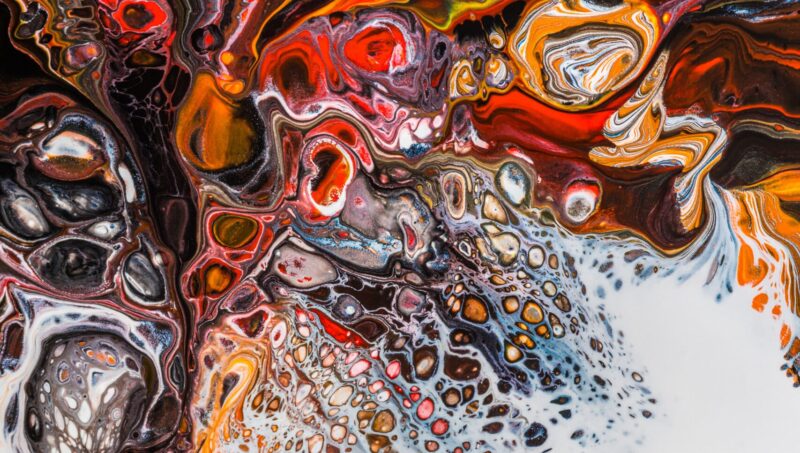Ruth Madievsky’s much-anticipated debut novel, All-Night Pharmacy, begins with the narrator’s sister, Debbie, preparing them for a night out in East Hollywood. Brows are plucked, pores are extracted, lips made perfectly symmetrical with a color called Toxic — Madievsky’s prose overflows with deliciously observed detail, but manages, somehow, to move at the clip of a racehorse — and thus, of course, are women transformed. As Debbie smears a smokey eye on her sister, the narrator realizes why “[s]he didn’t want me to learn how to do my own makeup. It would upset our dynamic of her as artist and me as canvas.”
In this outtake from All-Night Pharmacy, she’s made into a different kind of canvas, one that blurs boundaries she thought she controlled, as the narrator struggles to cope with her indefatigable sister’s disappearance.
— Jina Moore Ngarambe for Guernica
Sasha was at some artist’s retreat that weekend. It was 5:00 p.m. The thought of being alone and conscious for at least another six hours was terrifying. I popped an Ativan and changed into jeans and a low-cut mesh top. When I got to Salvation, Irv was the first man I saw. He wasn’t a regular, but he blended right in. He had a patchy beard and a toe ring, and he looked like he taught ukulele. We went back to my place. He asked if I had anything we could do, and he probably meant drugs, but I handed him a marker instead.
“Draw me,” I said. I gave him a long roll of paper I’d stolen from the hospital, the kind nurses drape over exam tables to help you pretend you aren’t sitting in the same spot as someone with TB. I took off my shirt. I didn’t wear bras anymore, because Sasha said they made my heart more difficult to penetrate. I stepped out of my jeans and underwear.
He placed a hand on my belly and closed his eyes. He stayed like that for several minutes. I thought about the Japanese woman who, before tidying up people’s homes on television, communed with the house to get to know it better. I dreaded whatever he greeted inside me. He uncapped the marker, gave it a quick sniff, and brought it to my chest. He drew a collapsing skyscraper across my rib cage. My left breast became a tornado; my right one, a peach. My thighs were streetlights, long and twisted and vaguely Gothic. He found tumbleweeds in my fists.
“You look better than the Sistine Chapel,” he said when all of me, even my face, was marked.
I was translucent. I was a rhinestone reflecting the moon in a parking lot. Some other things happened. He had a birthmark on his rib cage that he said was a third nipple. It was my favorite part of him. When we said goodbye, he reached out to shake my hand. Suddenly, he wore the professional veneer of a man who hadn’t asked a woman he met two hours earlier to choke him with a dishrag. Had he not just etched my insides on my outsides? I couldn’t understand how he separated what he’d done from who he was. I felt so porous, my edges leaky, the terrible things inside me gurgling in their cauldron.
I didn’t believe anything interesting happened when you died. I didn’t think my sister was dead, not really. But when I imagined it, my muscles seized and then deflated like inflatable mattresses, the air softly hissing out.
Ruth Madievsky’s book, All-Night Pharmacy, is out this moth from Penguin Random House.

